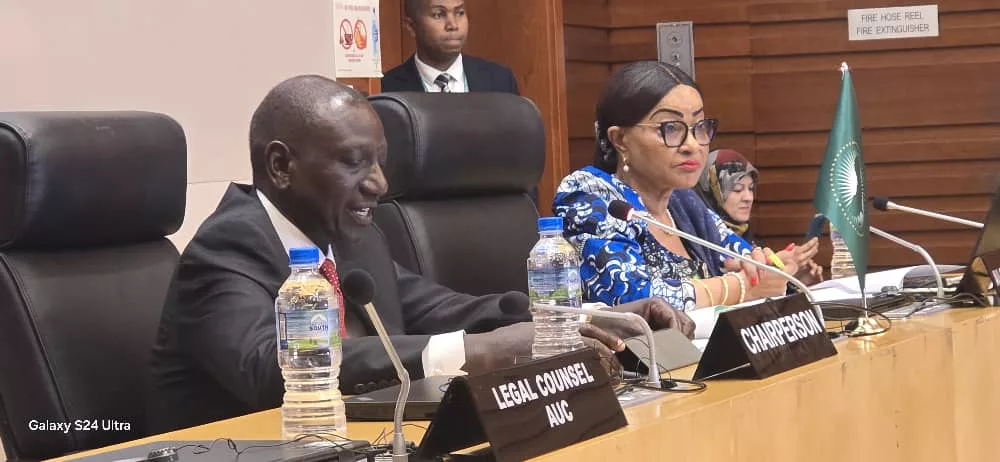
By Jeff Kapembwa
Africa needs an estimated US$15 billion annually to ‘detoxicate’ the continent as climate change ravages the continent, the African Union has said.
Africa, despite its low level of Green House Gases, emission-estimated at 4 degrees Celsius has fallen prey to the uncouth emissions induced by rich nations, ultimately affecting its food productivity as soils continue degrading compounded by the high toxicity of the ‘inorganic synthetic fertilizers’
Outgoing African Union Commissioner Josefa Correia Sacko regretted the unabated emissions buffeting Africa noting that there is an urgent need for adaptation and mitigation to reverse the losses being incurred on the environment and humanity, estimating US436 billion was adequate but for now.
Sacko, who served two terms in the Department of Agriculture, Rural Development, Blue Economy and Sustainable Environment, speaking during a meeting of the Committee of African Heads of State and Government on Climate Change (CAHOSCC) in the Ethiopian capital, Addis Ababa warned against severe consequences if action is not taken urgently.
She warned that if the planet warms by 2 degrees Celsius, climate change could cost African countries 50 billion dollars a year by 2050, a call for climate action to nip the problem in the bud.
“It is, therefore, essential to act now to mitigate the risks and prepare for the impact of climate change,” she emphasized during the sidelines of the 38th Summit of Heads of State and Government, which closed on Sunday.
Africa, she contended, remains one of the most vulnerable regions in the world to the impacts of climate change with the adverse effects of rising temperatures, rising sea levels, and extreme weather events on the continent.
Observing further that African countries face several challenges in implementing their nationally determined contributions, national adaptation plans, and effective monitoring systems for their climate actions, calls for a unity of purpose by affected countries to raise the red flag to fight the scourge that threatens the continent’s environmental and food security.
Dr. Sacko cited limited data, technology, infrastructure, and financial gaps as some of the critical constraints.
“The current funding instruments available do not match the scale of the needs to support the strategies and frameworks of African Union member states.”
African countries, she observed, might suffer more frequent and severe droughts, floods, and heat waves, which ultimately could lead to food and water shortages, the displacement of people, and the loss of biodiversity.
Commissioner Sacko later held an audience with the President of Mozambique, Daniel Chapo. The two discussed issues related to the climate change catastrophe plaguing the continent.
Mozambique takes on the role of Africa’s champion of natural disaster risk management on the continent. It replaces Filipe Nuysi, now appointed at the 35th Summit of Heads of State and Government.
Climate Change campaigners have argued and insisted that each country on the continent should strive to develop Nationally Determined Contributions (NDCs), which will help in fighting climate change.
This is because they allow each nation to set specific, achievable climate action targets based on their capabilities and circumstances, promoting transparency, accountability, and driving domestic.
This in turn helps to develop policies to reduce greenhouse gas emissions while adapting to the impacts of climate change, all while contributing to a collective global effort to combat climate change under the Paris Agreement.
Action Aid in its report notes serious oversight by developed nations in compensating Africa for losses incurred in climate change and needs resources to insulate the continent and help it revitalize its capacity, which has been dwarfed through such activities.
In its analysis, the global charity working to end poverty and injustice through collaboration with various local communities, civil society, and social movements to achieve social justice and gender equality, argues that the imbalances have made rich countries, key polluters failing to pay the climate debt of at least US$36trillion that they owe to Africa.
In 2024, the lower-income countries in Africa, ActionAid estimates, were forced to pay US$ 60 billion in debt repayments sacrificing health, education, people’s rights, and sustainable national development.
Various scholars have contended that unless Africa’s climate change crisis is resolved without further delay, the continent will face a significant increase in poverty, food insecurity, mass displacement, and conflict, primarily driven by extreme weather.
It cites droughts, floods, and heat waves, are some of the threats and might severely impact agriculture, water availability, and livelihoods across the continent.
This will disproportionately affect the most vulnerable populations; this could further exacerbate existing social and economic inequalities in Africa.
